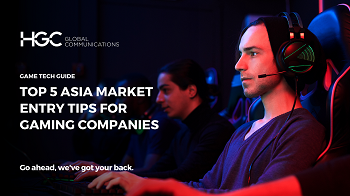解决方案
API 接口
Gamifying the shopping experience – How gaming is now the door to a metaverse economy

We are at the cusp of a cultural revolution only comparable to the creation of the internet itself. The fast spreading of the metaverse will fundamentally change the way we interact with others, shop, work, date, travel, and much more.
The term metaverse isn’t entirely new though; in fact it was coined in Neal Stephenson's 1992 science fiction novel Snow Crash, where humans, as avatars, interact with each other and software agents, in a three-dimensional space that uses the metaphor of the real world – essentially the definition of metaverse itself.
In the last nearly 30 years, the concept has evolved and has become a feature in many Hollywood blockbusters, especially in Ready Player One, probably one of the closest metaverse movies focused on mixed reality gaming that is closer to the reality we will be experiencing in the near future.
Gaming is indeed the platform with which we are re-writing our social interactions and commerce brands have also noticed this.
“What we call gaming is eating the world. Gaming is eating culture,” says Ryan David Mullins, CEO and creative director at Aglet, a developer of a sneaker- and culture-focused spatial commerce experience app and startup that has raised more than US$7 million to date to build up its platform.
“It is very interesting the way in which the internet is starting to come off of the screen. It's starting to now just become part of the fabric of the world that we live in. One of the very best ways to make this a more tangible idea and less abstract is to think about PokemonGo, for the sake of argument.
“The way that Niantic Labs has used location-based gaming to converge the virtual and the physical, and they're doing that via augmented reality as well as GPS. There's a number of technologies that will continue to improve and location-based mechanisms are what we're using in Aglet to bring together the physical and the digital. And so, when you put all these three things together, all of that is fusing together to create this Aglet experience, which is a location-based commerce platform for virtual and physical goods.”
The idea of Aglet – and the metaverse – is not to purely escape into a virtual world like Fortnite and live there.
The concept here is to almost reverse the way things have been for decades and start from the virtual world and work its way through to the real world.
“It's this idea of how do you take out a virtual world or take out a virtual space and put that as a layer on top of physical reality,” explains Mullins, who before Aglet served as head of digital innovation strategy for Adidas.
“This is where Jack Ma's idea of new retail is kind of on point. He doesn't really go into much of the metaverse idea, but you start to see that there's a big difference between something being a trend and something being trend.
“The trend is that the virtual and the physical are converging. And when those things collide, if you think of the, for example, Hadron Collider, when things collide, new stuff is created, innovation happens. And when the virtual and physical worlds are colliding, it opens up this space to start creating new consumer experiences, new forms of play emerge, new kinds of brands and new businesses and companies also come out of that space.”
According to Mullins, we are heading towards a spatial internet, and that is in fact what led him and his team to building Aglet.
“It is not escaping into a virtual world, but instead “incaping”,” he adds. “And again, there is a kind of game layer or a virtual layer that sits on top of that, like a new dimension of reality.”

In this webinar, expertise from HGC, Aglet, Shape Security and Macroview will cover:
Beyond changing the way we consume internet and play, the metaverse will also fundamentally change the way we shop as well as where, how fast, and how many options are presented to us. Afterall, in a world of digital and accessibility, bespoke products are the key.
For example, you might be one a trip and suddenly remember you need to buy a new pair of shoes for an interview you have next week. But how do you get a good pair of Italian leather shoes 3,000 Km away from the closest footwear shop?
Although the internet already provides you with some capability to do this, the metaverse will essentially take the shop with you, virtually. You will be able to purchase goods in an augmented reality setting, look at different options, sizes, see what it looks like on you, etc, and then order the shoes to be sent to your home. The opportunities are endless and quite essentially will redesign our shopping habits.
Mullins explains: “If you think about a game like Fortnite, they make at least US$2 billion to $4 billion a year on virtual skins. That is just to reinforce how weird that is to a lot of people that multi billions of dollars are spent on virtual and not real physical items.
“The average gamer is about 35 years old, but you now have younger kids who want to take their payments as well. They're working, doing the chores around the house. They want to get paid with virtual currencies for instance, such as “Aglets” where $1 corresponds to 5 “Aglets” in Aglet.
“There has been, for example, some press covering that people spend thousands on sneakers that don't exist [because they are virtual]… I think they do exist. That's a very generational way of putting it. For a certain generation, the distinction is between fake and real. And that's not the binary that we play with. We think both are real. One is just virtually real, and one is physically real.”
Those virtual goods are indeed “very real” to the millions of people that are spending billions of Dollars dressing their avatar in these games and live streaming them on Twitch whilst building their social capital as they would in high school wearing certain outfits to a party, for example.
“[Essentially,] the same behaviours that you see in the real world, in social groups and certain things that we find sacred, signalling activities we do as humans; those same mechanisms exist in these virtual worlds,” Mullins adds.
He continues: “Games are now the new social networks and all the dynamics that emerge out of a social network are obviously very commercial. And so why is it the next wave? What we're seeing is a lot of the forces that drove the last decade of growth in retail.
“In e-commerce we're reaching a kind of a flatline, not so much in terms of revenue growth, but in terms of just the experience, the fun and the different ways of connecting to brands.”
When it comes to the building of the metaverse, Mullins is very clear in painting the picture that this is not a single person or company endeavour, but “definitely a collaborative effort that is very infrastructural”.
“There are new kinds of standards and protocols that will need to be created. There are security issues, there are hardware opportunities, there's AR anchoring, there's AR cloud, there's GPS work to be done, there's 5G, you name it. There's all these new things that are well newish, things that are popping up that perhaps we weren't quite sure how to leverage them and use them yet,” he clarifies.
“They were technologies that we developed desperately searching for a problem to solve or an opportunity. Most new phases of technology production really move in these 10-to-15-year cycles. And each cycle is kind of kicked off by a cluster of technologies coming together to enable a new experience to be created.”
This is where HGC comes into play. To help build this new on life data-driven real-time world. HGC is a global technology company based in Hong Kong with infrastructure and platforms all over the world to sustain the metaverse.

Top 5 Asia Market Entry tips for Gaming companies

In this new economy, we need to have a combination of technologies applied to let these worlds to be built. HGC defines itself as a telco edge cloud that provides the infrastructure to enable users and gamers best experience.
With more than 15 years of experience, we own a great understanding on how to help you build your business and penetrate different markets, especially in South East Asia and mainland China in a very flexible business model.
Startups looking at entering the gaming sector, cannot dismiss the e-commerce opportunity that exists in that world as we have looked up above.
“If I am a startup company looking to do retail and gaming in Asia or in a different region, one of the key factor for my plaining is the business model,” explains Dennis Chan, AVP – OTT , International Business of HGC.
“Because if I am a startup, I most likely have limited resources and people. This is where location is key, and from my point of view, if aiming for Asia, Hong Kong is a very good steppingstone for a startup company with eyes set in the gaming segment. Hong Kong also offers a good environment to test the market before moving to other areas.”
As for people, Chan speaks of the most likely lack of access to technical experts as a new-born business.
He continues: “So maybe they are afraid, even if they have a good idea to create an amazing business, to create an app, the content, attract users, and so on. But they might not have the technology expertise of means to make it work.
“If you do not have a very good stack of, for example, edge computing locations or network infrastructure to provide the best user experience to your end user, they will walk away from your idea, even though you have very good content. This is where latency is so important.”
Being successful in the gaming world is totally dependent on how well networks perform and how much they bring down latency and avoid any lag too. In the gaming sphere, anything below the 100ms is considered acceptable as latency, with 20ms to 40ms seen as optimal.
However, as games become more realistic and things such as virtual and augmented reality pick up, consumers will eventually demand way lower times.
“This is where HGC can ease the pressure for gaming providers. We have more than 15 years of experience and are experts in helping companies in the gaming space penetrating new markets, especially Mainland China and Southeast Asia,” Chan adds.
“It is a critical factor for a startup company to have a really good partner, to have them to be up the ecosystem. The future of gaming is immersive, especially with 5G coming. A lot of games are becoming more like AR or VR, and all serviced through cloud gaming. The user experience built on low latency, how fast the game server can assess who and where the end device is, good infrastructure; this is the key success factor to operate a good gaming experience.
“Some people might think they can do it all using just the public cloud, but the point is: public cloud is easy to use, everyone wants to use it, but they cannot do customisation for you. They will not give you a unique setup tailored to your business needs, especially in gaming, and even more, e-commerce within a gaming platform.
“A technology company like HGC is able to have this provide this and help startups penetrate the market in a very flexible business model. And this goes back to the key success factors: if you have a good idea, how can you find a good technology partner to penetrate in the market? This is definitely where HGC can help.”
環球全域電訊有限公司可不論直接或透過其聯營公司、代理及/或商業夥伴1,使用本人的個人資料2(“Personal Data”) for direct marketing of the services and/or products as set out below.
若閣下不同意以下任何一項請選擇適當空格,環球全域電訊有限公司便不能使用閣下的個人資料作直接促銷。
附註
註
If at any time in the future you do not wish HGC Global Communications Limited, its affiliated companies, agents and/or business partners in providing you with any information
for direct marketing of the aforesaid products and services relating to HGC Global Communications Limited, its affiliated companies and business partners, please contact us via email suggestion@hgc.com.hk, or by mail to PO Box
33, Tsuen Wan Post Office, Hong Kong or call HGC Global Communications Limited’s Customer Services Hotline 1220 (Voice/IDD Service) / 1222 (Internet Service). If you inform us via email or by post, our customer service representative
will contact you for verification purpose.